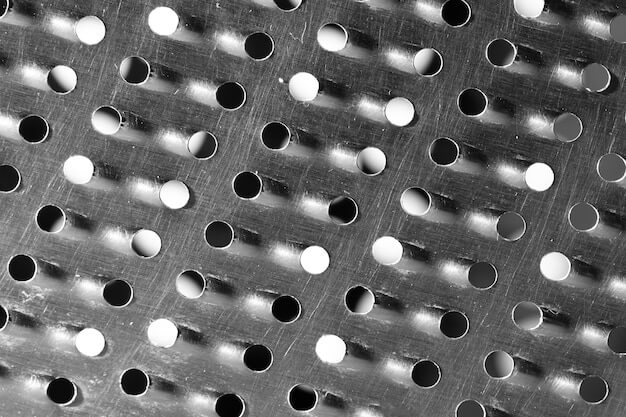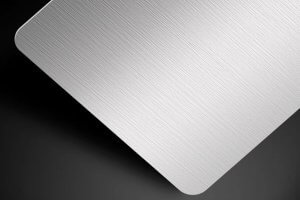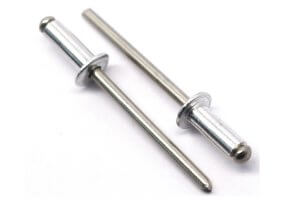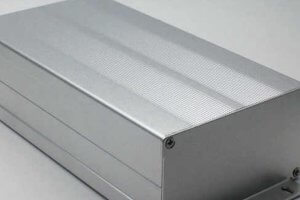Introduction: Understanding CNC Machining and the Role of Polypropylene and ABS Plastics in Manufacturing
CNC Machining is a manufacturing process wherein pre-programmed computer software directs movement of machinery and tools. It plays an indispensable role in manufacturing, allowing for precise control, complex cuts, large scale production with minor variance between parts, and high repeatability ultimately reducing human error.
In CNC machining, plastics like polypropylene and Acrylonitrile Butadiene Styrene (ABS) are commonly used thanks to their advantageous characteristics. Polypropylene, a semi-crystalline thermoplastic which has high impact resistance and excellent electrical properties, widely appreciated because it can be produced translucent when uncolored but is not as readily made transparent as polystyrene, acrylic, or certain other plastics. On the other hand, ABS plastic is robust, highly machinable, has strong mechanical properties & chemical resistance, and is suitable for products that require toughness and dimensional stability. Thus, both these materials have unique properties offering different advantages depending on the type of product being manufactured.
Polypropylene Overview
Polypropylene, a thermoplastic polymer, originated from the polymerization process of propylene monomer. Boasting inherent characteristics such as rigidity, low coefficient of friction, and strong chemical resistance, this material has proven highly advantageous in CNC machining processes over other varieties. Polypropylene’s robustness to wear-and-tear is amplified by its remarkable fatigue resistance, enabling it to endure repetitive motions with minimal degradation.
- Advantages: In comparison with other materials used in CNC machining, polypropylene exhibits an excellent combination of features: strength, toughness, electrical insulating properties, and Mold-ability.
- Limitations: However, despite these advantages, limitations exist. The primary drawback lies in its reduced dimensional accuracy due to cooling variations following the molding process. Furthermore, although resistant to many chemicals, it lacks resilience against oxidizing acids, aromatic and chlorinated hydrocarbons which may affect its longevity in certain environments.
Overview of ABS (Acrylonitrile Butadiene Styrene)
ABS, or Acrylonitrile Butadiene Styrene, is a popular thermoplastic in CNC machining due to its robust set of properties. First formulated during the 1940’s for use predominantly in oil fields and chemical industries, it offers manufacturers excellent mechanical strength, injection molding capabilities, and superior dimensional stability. These advantages make ABS ideal for applications that require high impact resistance such as automotive parts, electronic assemblies, and various consumer goods.
- Benefits: ABS sees extensive usage in CNC machining for several key reasons. It can undergo line bending, flame polishing, and adhesive bonding processes with ease. Its durability under stress makes it superb for producing sturdy prototypes. Plus, ABS can be seamlessly finished, which helps achieve intricate detailing and an aesthetically pleasing end product.
- Disadvantages: Similarly, ABS does pose certain challenges when used in CNC machining. It has lower chemical and heat resistance compared to other plastics like Polypropylene, making it less suitable for applications where these factors are critical. It can also warp and shrink over time— issues typically encountered during the cooling process post-machining. This might necessitate additional finishing steps, increasing overall production times and costs.
In-depth Comparison of Polypropylene and ABS in CNC Machining
Polypropylene and ABS are both commonly used materials in CNC machining, each offering unique advantages. When considering polypropylene, its high chemical resistance, fatigue strength, and smooth surface finish make it a favorable choice for CNC machining. On the other hand, ABS boasts excellent machinability, impact resistance, and cost-effectiveness, making it a popular option for various CNC machining applications.
Successful Use of Polypropylene in CNC Machining: A Case Study
In a recent case study, the automotive industry giant, Ford Motors, effectively employed Polypropylene (PP) for their CNC machining process. Their objective was to enhance durability and reduce costs linked with certain interior car components. They decided on PP over ABS due to its resistance to fatigue and superior flexibility, crucial factors considering the parts’ regular physical interaction by users.
- The choice significantly impacted Ford’s product development cycle: PP machined parts were easier to produce at a quicker pace than potential ABS counterparts. By integrating Polypropylene into their CNC machining, they also noticed a marked decrease in production-related expenditures, contributing to broader cost-efficiency goals.
- The high recycling potential of this material following the lifecycle of these vehicle elements resulted in an improved sustainability profile, which favorably added to the company’s ecological commitments without compromising performance or affordability.
Making an Informed Decision: Polypropylene vs ABS in CNC Machining
In conclusion, the decision between utilising polypropylene or ABS significantly hinges on the specific requirements of your CNC machining project. Polypropylene offers key advantages such as resilience to fatigue, lightweight nature, and high resistance to most chemicals, which make it highly ideal for items subject to wear and chemical exposure. On the other hand, ABS boasts of excellent impact resistance, superior machinability, and considerable strength making it more suited for products needing durability and detailed designs.
However, it’s crucial to remember that these comparisons don’t automatically dictate one plastic as superior over the other. The application context fundamentally influences whether ABS or polypropylene would yield more beneficial results. Therefore, comprehending these differences prompts a well-informed decision regarding your material choice for CNC machining, ensuring you maximize efficiency and quality in your production processes.
Other Articles You Might Enjoy
- Choosing Between 304 and 316 Stainless Steel for CNC Machining Applications
Introduction to 304 and 316 Stainless Steel in CNC Machining Applications The selection of the right grade of stainless steel is vital in Computer Numeric Control (CNC) machining applications. Here,…
- High-Precision CNC Machining for Custom Optical Lenses
Introduction to CNC Machining and its Significance in Custom Optical Lenses CNC - Computer Numerical Control machining, is a highly precise process employed for the production of complex parts with…
- Exploring Bead Blasting in CNC Machining(tac welding Victoria)
CNC machining stands for Computer Numeric Control, which is a manufacturing process where pre-programmed computer software dictates the movement of factory tools and machinery. This method can be used to…










 Afrikaans
Afrikaans Albanian
Albanian Amharic
Amharic Arabic
Arabic Armenian
Armenian Azerbaijani
Azerbaijani Basque
Basque Belarusian
Belarusian Bengali
Bengali Bosnian
Bosnian Bulgarian
Bulgarian Catalan
Catalan Cebuano
Cebuano Chichewa
Chichewa Chinese (Simplified)
Chinese (Simplified) Chinese (Traditional)
Chinese (Traditional) Corsican
Corsican Croatian
Croatian Czech
Czech Danish
Danish Dutch
Dutch English
English Esperanto
Esperanto Estonian
Estonian Filipino
Filipino Finnish
Finnish French
French Frisian
Frisian Galician
Galician Georgian
Georgian German
German Greek
Greek Gujarati
Gujarati Haitian Creole
Haitian Creole Hausa
Hausa Hawaiian
Hawaiian Hebrew
Hebrew Hindi
Hindi Hmong
Hmong Hungarian
Hungarian Icelandic
Icelandic Igbo
Igbo Indonesian
Indonesian Irish
Irish Italian
Italian Japanese
Japanese Javanese
Javanese Kannada
Kannada Kazakh
Kazakh Khmer
Khmer Korean
Korean Kurdish (Kurmanji)
Kurdish (Kurmanji) Kyrgyz
Kyrgyz Lao
Lao Latin
Latin Latvian
Latvian Lithuanian
Lithuanian Luxembourgish
Luxembourgish Macedonian
Macedonian Malagasy
Malagasy Malay
Malay Malayalam
Malayalam Maltese
Maltese Maori
Maori Marathi
Marathi Mongolian
Mongolian Myanmar (Burmese)
Myanmar (Burmese) Nepali
Nepali Norwegian
Norwegian Pashto
Pashto Persian
Persian Polish
Polish Portuguese
Portuguese Punjabi
Punjabi Romanian
Romanian Russian
Russian Samoan
Samoan Scottish Gaelic
Scottish Gaelic Serbian
Serbian Sesotho
Sesotho Shona
Shona Sindhi
Sindhi Sinhala
Sinhala Slovak
Slovak Slovenian
Slovenian Somali
Somali Spanish
Spanish Sundanese
Sundanese Swahili
Swahili Swedish
Swedish Tajik
Tajik Tamil
Tamil Telugu
Telugu Thai
Thai Turkish
Turkish Ukrainian
Ukrainian Urdu
Urdu Uzbek
Uzbek Vietnamese
Vietnamese Welsh
Welsh Xhosa
Xhosa Yiddish
Yiddish Yoruba
Yoruba Zulu
Zulu